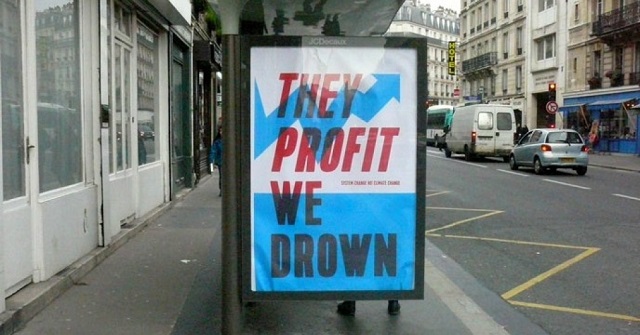Podcast: Play in new window | Download
Subscribe: Apple Podcasts | Android | Email | Google Podcasts | RSS | More
This week marks the beginning of the COP21 climate talks in Paris, the latest episode in a UN framework that has been trying, and failing, to reduce global carbon emission for over two decades now. For my first interview, I caught up with Oscar Reyes, Barcelona-based climate policy researcher, to get an overview of what to expect from the talks. Oscar works with the Institute for Policy Studies and has also been affiliated with the Transnational Institute; he has a long history of excellent critical writing and activism on climate issues.
In the second part of the episode, I speak with Shannon Daub, Communications Director for the CCPA British Columbia office. Shannon discusses the CCPA’s important new project that will trace the fossil fuel industry’s networks of money and influence across Canada, particularly the Western provinces. Climate inaction and corporate power: a key duo to examine on the eve of another summit that looks to tinker at the edges of a very dangerous status quo.

One reply on “COP21, climate inaction and corporate power”
I agree with the other poster,Kyoto means nohitng without China, and I think you need to add India and Brazil to that.I still think that America and Australia will be stubborn about it, even though America has a president who seems to know what he’s doing for the first time in years.I don’t think it will be difficult as long as there are allowances made for developing nations, and by that I don’t mean China. China has experienced exponential growth in the past few years and need to recognise the effect on the planet.However,if we make economies like China slow down, who are arguably holding up the world economy, then there could be horrible economic circumstances, especially in the current economic climate. The economy and the planet need to meet half way until we’re out of this mess